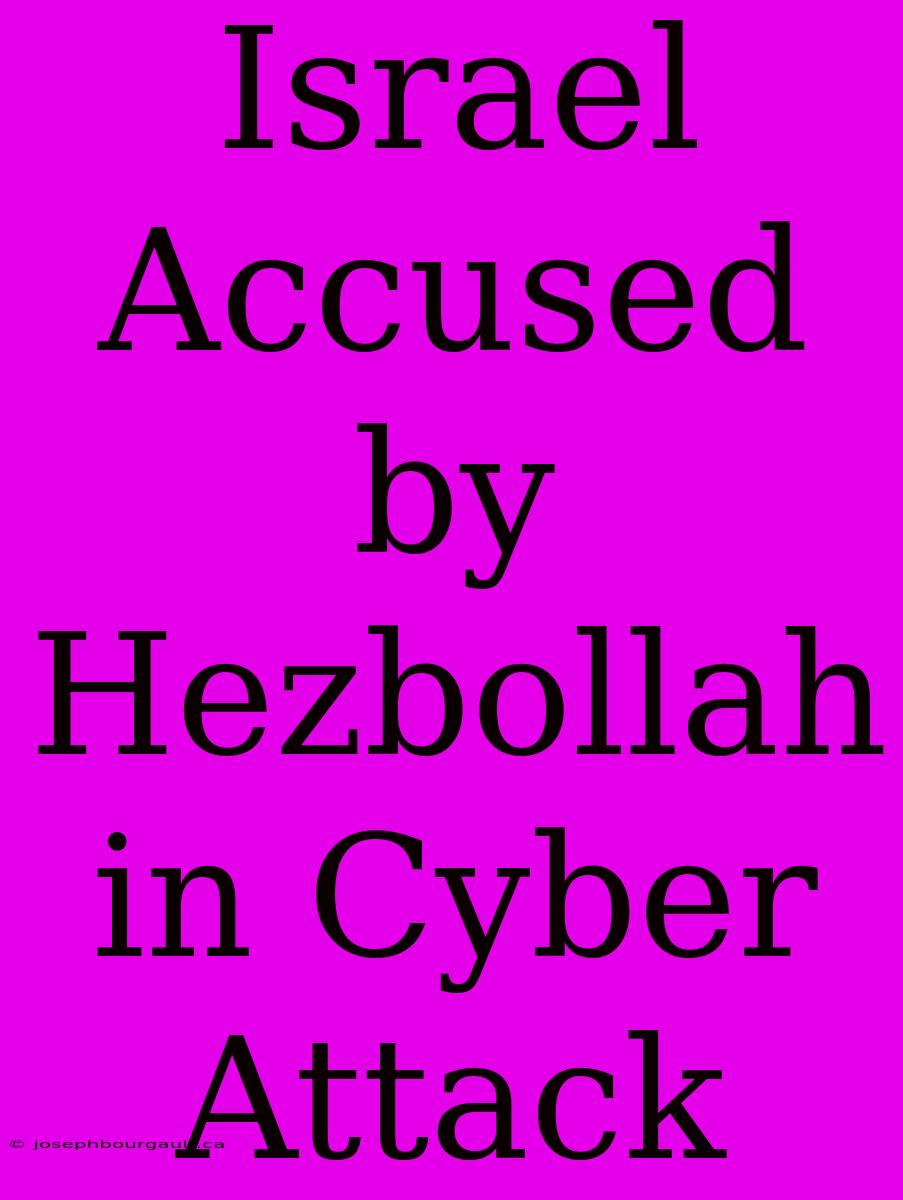Hezbollah Accuses Israel of Cyber Attack: A Growing Trend in Middle East Conflict
Hezbollah, the Lebanese Shia militant group, has accused Israel of launching a cyber attack against its infrastructure, marking a significant escalation in the ongoing conflict between the two entities. The accusation, which has not been independently verified, comes amidst a backdrop of escalating tensions in the region and highlights the increasing role of cyber warfare in modern conflict.
Background:
The cyber attack, allegedly targeting Hezbollah's communication and logistical networks, is said to have occurred in recent weeks. Hezbollah has provided no concrete evidence to support its claims. However, the group's accusation comes amidst a period of heightened tensions, following a series of Israeli airstrikes against alleged Iranian-backed targets in Syria, which Hezbollah considers an ally.
Israel's Response:
Israel has not publicly commented on Hezbollah's accusations. However, the Israeli government has previously acknowledged its use of cyber capabilities against its adversaries, including Iran and Hamas. Israeli officials have stressed the importance of defending the country from cyber threats, citing a growing threat posed by hostile actors in the region.
Cyber Warfare and the Middle East:
The alleged cyber attack against Hezbollah is not an isolated incident. In recent years, the Middle East has witnessed a significant rise in cyber warfare activity, with actors from both sides of the conflict utilizing digital tools for espionage, sabotage, and even physical attacks. This trend is likely to continue as cyber technology advances and becomes more accessible.
Key Implications:
- Escalation of Conflict: The use of cyber attacks as a tool of war further complicates the already complex relationship between Israel and Hezbollah. This could potentially lead to a full-blown cyber conflict, with unpredictable consequences.
- Impact on Infrastructure: Cyber attacks targeting critical infrastructure, such as power grids, communication networks, and financial institutions, can have devastating consequences.
- Potential for Miscalculation: The use of cyber weapons raises concerns about the potential for miscalculation and escalation, as it can be difficult to attribute attacks with certainty.
The Future of Cyber Warfare in the Middle East:
The ongoing conflict between Israel and Hezbollah, alongside other regional conflicts, is likely to continue driving innovation in cyber warfare. As technology advances and becomes more widely available, actors in the region will be increasingly reliant on cyber capabilities for offensive and defensive operations. This raises critical questions about the future of cyber security and the potential for a new generation of cyber conflicts in the Middle East.
Conclusion:
The accusation of a cyber attack against Hezbollah, while unverified, highlights the increasingly important role of cyber warfare in modern conflicts. This trend carries significant risks and implications, requiring careful consideration and proactive measures to mitigate the potential for escalation and unintended consequences.

